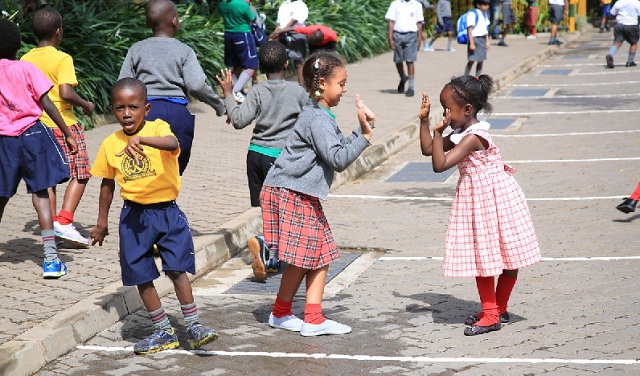
Young people’s health compromised by insufficient physical activity, new WHO report

Kampala, Uganda | THE INDEPENDENT | Eighty percent school-going adolescents worldwide are not meeting the current recommendations of at least one hour of physical activity per day, a new report by the World Health Organisation-WHO has revealed.
The study, which is the first ever to analyze global trends for physical activity among school going adolescents of 11 to 17 years, was done among 1.6 million students selected across 146 countries.
The researchers estimated how many adolescents do not meet recommended daily physical fitness range by analyzing data collected through school-based surveys on physical activity levels.
The assessment included all types of physical activity, such as time spent in active play, recreation and sports, active domestic chores, walking and cycling or other types of active transportation, physical education and planned exercise.
The findings by researchers from WHO and are published in The Lancet Child & Adolescent Health journal show that girls were more inactive than boys in all countries between 2001 and 2016 apart from Zambia, Tonga, Samoa and Afghanistan.
WHO researcher Dr. Regina Guthold who authored the study called for urgent policy action to increase physical activity especially interventions that promote and retain girl’s participation if the world is to nip in the bud the health challenges that arise out of inactivity.
The health benefits of a physically active lifestyle during adolescence include improved heart health and muscular fitness, bone health, and positive effects on weight. There is also growing evidence that physical activity has a positive impact on cognitive development and socializing. Current evidence suggests that many of these benefits continue into adulthood.
To achieve these benefits, the WHO recommends for adolescents to do moderate or vigorous physical activity for an hour or more each day. Even as they found many don’t exercise as they recommend, another WHO researcher Dr. Fiona Bull said in a statement that school and government authorities should note that young people have a right to play and should be provided with the opportunities to realize their right to physical and mental health and wellbeing.
For her, strong political will and action can address the fact that four in every five adolescents do not experience the enjoyment and social, physical, and mental health benefits of regular physical activity.
Through promotion of physical activity, she says young people’s current and future health will be preserved and warns that if current trend continues, the global target of a 15% relative reduction in insufficient physical activity – which would lead to a global prevalence of less than 70% by 2030 – will not be achieved.
This target was agreed to by all countries under the United Nations at the World Health Assembly in 2018.
******
URN
The post Young people’s health compromised by insufficient physical activity, new WHO report appeared first on The Independent Uganda:.
0 Response to "Young people’s health compromised by insufficient physical activity, new WHO report"
Post a Comment